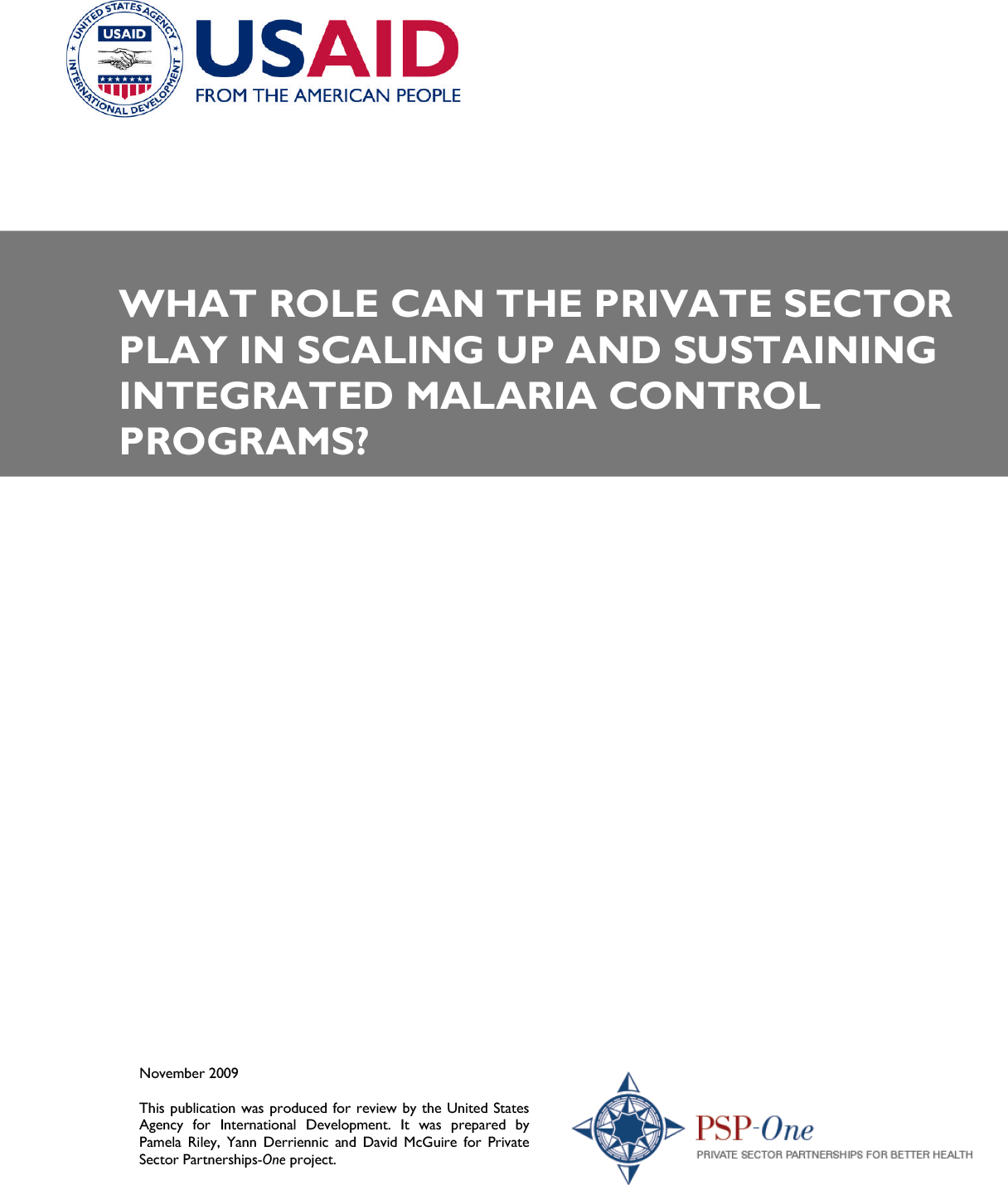
Resource Library
What Role Can the Private Sector Play in Scaling Up and Sustaining Integrated Malaria Control Programs?
Malaria is well recognized as a threat to social and economic stability causing more than 1 million deaths each year in sub-Saharan Africa. In response, the international donor community and partner governments in Africa have provided unprecedented funding for malaria control interventions. Aggressive targets have been set for coverage of three core interventions by 2010, but many countries are still far from meeting those targets. As focus on these short-term goals intensifies, there has been increasing reliance on mass distribution of free commodities and services through public health channels. This approach fails to harness crucial resources available through the private sector, and leaves countries vulnerable to future fall-off in external funding. This report demonstrates that the private sector is active in the fight against malaria, and has comparative advantages in provision of the commodities and services needed to prevent and treat the disease. For the past few years, however, a catch up strategy of free distribution of nets and drugs through the public health system has marginalized the private sector, compromising long-term sustainability for coverage programs. This saves lives now, but may do so at the expense of saving lives in the future, a choice we need not and should not make. Against a staggering need is the reality of a global recession and high risk of shifting donor priorities to other pressing needs. The current path of donor-driven subsidies and reliance on public sector channels cannot get us where we need to go. A re-engagement of the private sector is urgently needed to optimize private sector strengths, tap new resources, and make better use of existing channels to expand access to malaria interventions and reduce the financial burden on governments.
Resource Type : Report
Country :
Year : 2009-12-02T09:30:00
Language : English
Project : SHOPS


